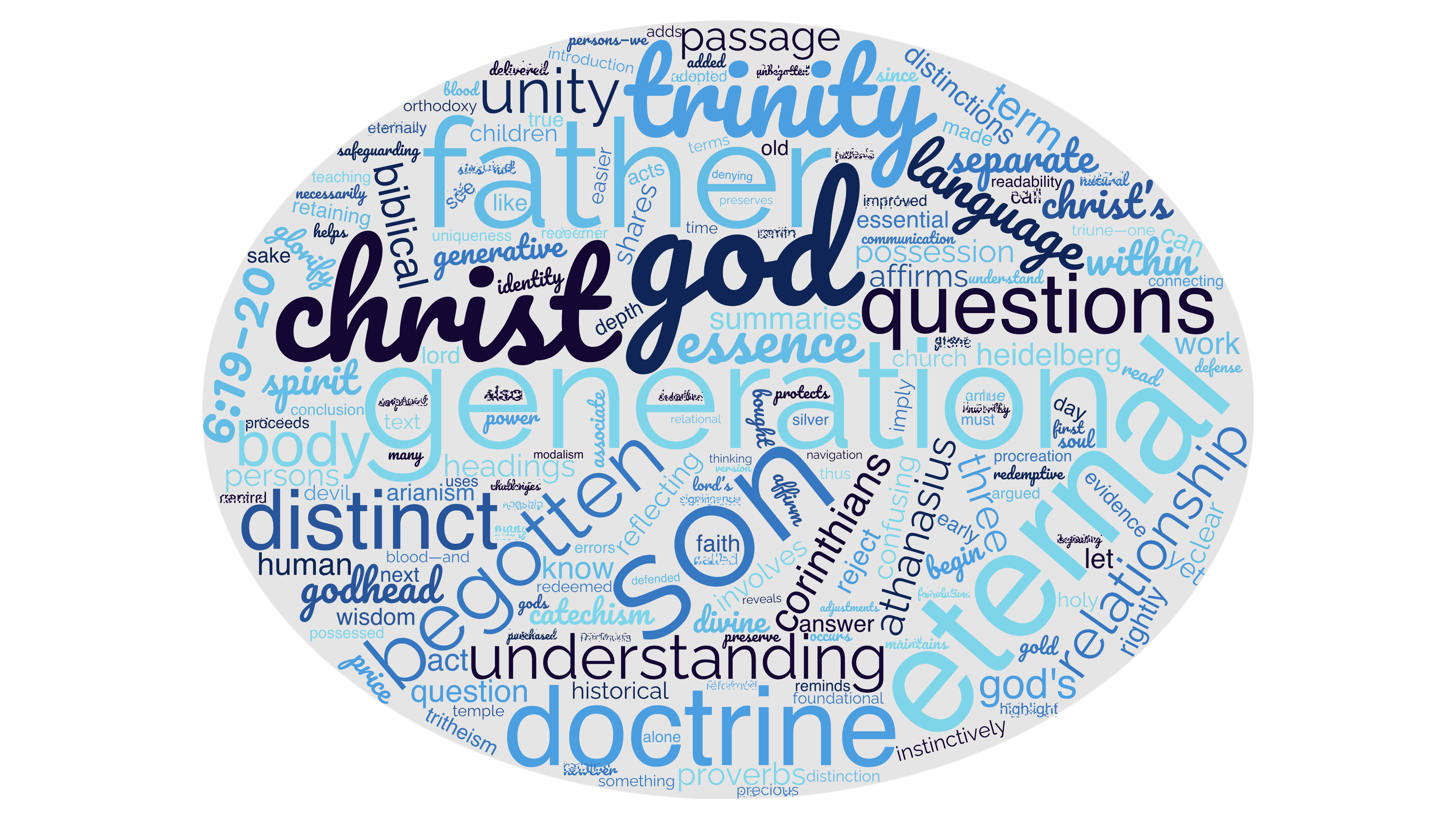What is the doctrine of the eternal generation of the Son?

Introduction: Questions 33 and 34 of the Heidelberg Catechism
We begin with Questions 33 and 34 from Lord’s Day 13 of the Heidelberg Catechism:
Question 33: Why is Christ called the only begotten Son of God, since we are also children of God?
Answer: Because Christ alone is the eternal and natural Son of God; but we are children adopted of God, by grace, for His sake.
Question 34: Why do you call Him “our Lord”?
Answer: Because He has redeemed us, both soul and body, from all our sins—not with gold or silver, but with His precious blood—and has delivered us from all the power of the devil, and thus has made us His own possession.
These questions highlight the uniqueness of Christ as the eternal Son of God and our Redeemer.
Biblical Foundation: 1 Corinthians 6:19–20
Next, we read from 1 Corinthians 6:19–20:
“Or do you not know that your body is a temple of the Holy Spirit within you, whom you have from God? You are not your own, for you were bought with a price. So glorify God in your body.”
This passage reminds us that Christ’s redemptive work is central to understanding our identity as those purchased by His blood.
Understanding the Eternal Generation of the Son
The doctrine of the eternal generation of the Son is essential for understanding the Trinity. It affirms that Christ, the Son of God, is eternally begotten of the Father.
Challenges with the Term “Generation”
The term generation can be confusing because we associate it with human procreation. Many instinctively reject this language, thinking it implies something unworthy of God. However, the Bible uses the relational terms Father and Son, which imply a generative act.
Safeguarding the Trinity: Unity and Distinction
To affirm that God is Triune—one in essence yet three persons—we must preserve the unity of God’s being and the distinctions within the Godhead:
- The Father is unbegotten.
- The Son is begotten.
- The Spirit proceeds from the Father and the Son.
This language protects us from errors like tritheism (three gods) or modalism (denying distinct persons in the Trinity).
Historical Defense: Athanasius and Arianism
The Church Father Athanasius defended the doctrine of eternal generation against Arianism. He argued that the relationship between the Father and Son necessarily involves a generative act. This generation is:
- A communication of essence: The Son shares the same divine essence as the Father.
- Distinct but not separate: The Son is distinct from the Father but not separate from Him.
- Eternal: Unlike human generation, which occurs in time, the generation of the Son is eternal.
Scriptural Evidence: Proverbs 8
Proverbs 8:22–31 describes eternal wisdom:
“The Lord possessed me at the beginning of His work, the first of His acts of old…”
This passage reveals Christ as the eternal Wisdom of God. The Father’s possession of the Son is by true generation, reflecting their eternal relationship.
Conclusion: The Significance of Eternal Generation
The doctrine of the eternal generation of the Son helps us rightly understand the Trinity:
- It maintains the unity of God’s essence.
- It affirms the distinct persons of the Godhead.
- It preserves biblical and historical orthodoxy, connecting us with the faith of the early Church and Reformed traditions.
Through this doctrine, we see that Christ’s divine Sonship is eternal, essential, and foundational to our faith.
From the sermon “The Only Begotten Son, Our Lord” Heidelberg Catechism, Lord’s Day 13, Questions 33 & 34.



Leave a Reply